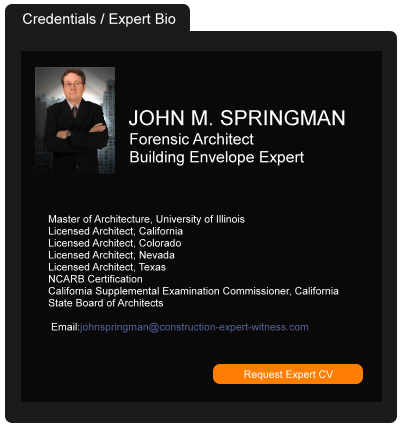Washington Builders Right To Repair Current Law Summary:
Current Law Summary: (SB 5536) The legislature passed a contractor protection bill that reduces contractors' exposure to lawsuits to six years from 12, and gives builders seven "affirmative defenses" to counter defect complaints from homeowners. Claimant must provide notice no later than 45 days before filing action; within 21 days of notice of claim, "construction professional" must serve response; claimant must accept or reject inspection proposal or settlement offer within 30 days; within 14 days following inspection, construction pro must serve written offer to remedy/compromise/settle; claimant can reject all offers; statutes of limitations are tolled until 60 days after period of time during which filing of action is barred under section 3 of the act. This law applies to single-family dwellings and condos.
Building Expert Contractors Licensing
Guidelines Seattle Washington
A license is required for plumbing, and electrical trades. Businesses must register with the Secretary of State.
Association Directory
Local # 4955
335 116th Ave SE
Bellevue, WA 98004
http://www.masterbuildersinfo.com
Seattle Washington Building Expert 10/ 10
Home Builders Association of Kitsap County
Local # 4944
5251 Auto Ctr Way
Bremerton, WA 98312
http://www.kitsaphba.com
Seattle Washington Building Expert 10/ 10
Home Builders Association of Spokane
Local # 4966
5813 E 4th Ave Ste 201
Spokane, WA 99212
http://www.shba.com
Seattle Washington Building Expert 10/ 10
Home Builders Association of North Central
Local # 4957
PO Box 2065
Wenatchee, WA 98801
http://www.nchba.cc
Seattle Washington Building Expert 10/ 10
MBuilders Association of Pierce County
Local # 4977
PO Box 1913 Suite 301
Tacoma, WA 98401
http://www.mbapierce.com
Seattle Washington Building Expert 10/ 10
North Peninsula Builders Association
Local # 4927
PO Box 748
Port Angeles, WA 98362
Seattle Washington Building Expert 10/ 10
Jefferson County Home Builders Association
Local # 4947
PO Box 1399
Port Hadlock, WA 98339
http://www.jeffcohomebuilders.com
Seattle Washington Building Expert 10/ 10
Building Expert News and Information
For Seattle Washington
Louisiana Couple Claims Hurricane Revealed Construction Defects
Steel Component Plant Linked to West Virginia Governor Signs $1M Pollution Pact
Colorado Adopts Twombly-Iqbal “Plausibility” Standard
Preventing Acts of God: Construction Accidents Caused by Outside Factors
Policyholders' Coverage Checklist in Times of Coronavirus
Rachel Reynolds Selected as Prime Member of ADTA
Repairing One’s Own Work and the one Year Statute of Limitations to Sue a Miller Act Payment Bond
Manhattan to Get Tall, Skinny Tower
Top Developments March 2024
Purely “Compensatory” Debts Owed by Attorneys to Clients (Which Are Not Disciplinary or Punitive Fees Imposed by the State Bar) Are Dischargeable In Bankruptcy
Traub Lieberman Attorneys Jessica Burtnett and Jessica Kull Obtain Dismissal of Claim Against Insurance Producer Based Upon Statute of Limitations
Jobsite Safety, Workforce Shortage Drive Innovation in Machine Automation
'Perfect Storm' Caused Fractures at San Francisco Transit Hub
Part of the Whole: Idaho District Court Holds Economic Loss Rule Bars Tort Claims Related to Water Supply Line that was Part of Home Purchase
Saving Manhattan: Agencies, Consultants, Contractors Join Fight to Keep New York City Above Water
Public Works Bid Protests – Who Is Responsible? Who Is Responsive?
A Guide to Evaluating Snow & Ice Cases
“You’re Out of Here!” -- CERCLA (Superfund) Federal Preemption of State Environmental Claims in State Courts
Repairs to Water Infrastructure Underway After Hurricane Helene
Disputes Over Arbitrator Qualifications: The Northern District of California Offers Some Guidance
Allocating Covered and Uncovered Damages in Jury Verdict
High Court Case Review Frees Jailed Buffalo Billions Contractor CEO
Update: Supreme Court Issues Opinion in West Virginia v. EPA
A General Contractor’s Guide to Additional Insured Coverage
More Musings From the Mediation Trenches
How Many Homes have Energy-Efficient Appliances?
Construction Firm Sues City and Engineers over Reservoir Project
Construction Down in Twin Cities Area
Ninth Circuit Finds No Coverage for Construction Defects Under California Law
EPA Will Soon Issue the Latest Revision to the Risk Management Program (RMP) Chemical Release Rules
California Supreme Court Rejects Third Exception to Privette Doctrine
Uniform Rules Governing New York’s Supreme and County Courts Get An Overhaul
Flood Sublimits Do Not Apply to Loss Caused by Named Windstorm
The Secret to Success Is Doing Things a Little Bit Differently
Insurance Coverage for COVID-19? Two N.J. Courts Allow Litigation to Proceed
New Jersey Supreme Court Issue Important Decision for Homeowners and Contractors
Mondaq’s 2023 Construction Comparative Guide
Business and Professions Code Section 7031, Demurrers, and Just How Much You Can Dance
Insurer's Summary Judgment Motion on Business Risk Exclusions Fails
California Supreme Court Protects California Policyholders for Intentional Acts of Employees
Musk’s Cousins Battle Utilities to Make Solar Rooftops Cheap
New Executive Orders Expedite the Need for Contractors to Go Green
Southern California Lost $8 Billion in Construction Wages
Quick Note: October 1, 2023 Changes to Florida’s Construction Statutes
Coverage, Bad Faith Upheld In Construction Defect Case
Fine Art Losses – “Canvas” the Subrogation Landscape
North Dakota Universities Crumble as Oil Cash Pours In
NLRB Broadens the Joint Employer Standard
Florida High-Rise for Sale, Construction Defects Possibly Included
No Coverage for Construction Defects Under Arkansas Law


































































